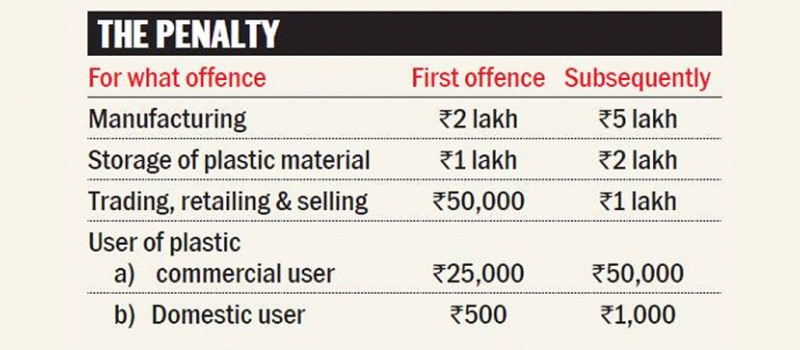India Bans Plastic Disposables In Effort To Curb Devastating Pollution
The National Green Tribunal has banned the use of disposable plastics and directed the city governments to take steps to reduce dumped waste.
Currently, India is responsible for 60 percent of the world’s plastic pollution in the ocean, which is a rapidly-growing issue. Plastic pollution not only seriously harms marine wildlife but it makes its way into the oceanic food chain before humans consume the animals that consumed the plastic. This is highly toxic but goes unbeknownst to consumers on a daily basis. Along with the new law comes a new fine for plants caught burning trash. The fine is 500,000 rupees for each pollution incident. While this may not seem high, every plant that ceases its trash burning to avoid the fine will help to dramatically decrease the smog in the city.
Manufacturers and stores selling plastic bags will be fined 5,000 rupees, while individuals using bags face penalties of 1,000 rupees.
As more cities, states, providences, countries, and the like adopt bans on plastic products, the possibility of salvaging what’s left of Earth as we know it increases. It’s important that all global citizens recognize the need to reduce waste and incorporate new practices into their lives to achieve this, even if it’s not forced on them to do so by the law.

Madhya Pradesh:
The Madhya Pradesh government decided to ban plastic and polythene bags across the state from May 1, 2016 saying it is leading to cow deaths and polluting the environment. Environmentalists have hailed the ban.
Jammu & Kashmir:
On March 2016, the Union Ministry notified the new rules called the Plastic Waste Management Rules, 2016, banning polythene carry bags, and not allowing below 50-micron polythene for use
Delhi:
The National Green Tribunal had last year prohibited the use of disposable plastic in the entire city, especially at hotels, restaurants and for public and private functions, while asking the Delhi government to take appropriate steps against “storage, sale and use” of such material from January 1 this year.
Karnataka:
The Karnataka government issued an official gazette notification last year stating a complete and total ban on plastic and all plastic and thermacol products in the State.
The notification cited: “No shopkeeper, vendor, wholesale dealer, retailer, trader, hawker or salesman shall use plastic carry bags, plastic banners, plastic buntings, flex, plastic flags, plastic plates, plastic cups, plastic spoons, cling films and plastic sheets for spreading on dinning table irrespective of thickness including the above items made of thermacol and plastic which use plastic micro beeds.”
Uttar Pradesh:
To protect the environment and public health, the Uttar Pradesh government also called for a complete ban in 2015 on the use of plastic in the state.
Uttarakhand:
The Uttarakhand government issued an order imposing total ban on sale, use and storage of plastic bags, cups, glasses, packing material with effect from January 11, 2017.
As a partner is sustaining the environment, we invite all those who understand the impact of plastic pollution, thus join hands with us and become Green Warriors! We request each conscientious citizen of the country to support and respect the government’s plastic ban and do their best to protect and save the environment for coming generations.



 Survey No. 11/6, Kamthe Warehousing,
Near Aster Myrah Society,
Pisoli, Pune - 411060
Survey No. 11/6, Kamthe Warehousing,
Near Aster Myrah Society,
Pisoli, Pune - 411060


